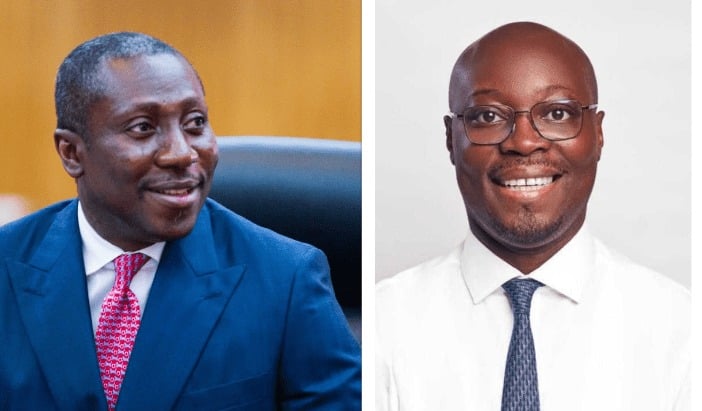The political landscape of Ghana witnessed a dramatic turn of events following the December 7, 2024, general elections. Alexander Afenyo-Markin, the then Majority Leader and a prominent figure in the New Patriotic Party (NPP), found himself in a predicament that underscored the unpredictable nature of politics. Just a month prior, in November 2024, Afenyo-Markin had vehemently declared his refusal to ever occupy the Minority Leader’s chair in Parliament. He cited spiritual reasons for his aversion, framing the act of sitting in that particular seat as an acceptance of defeat and a symbolic descent into a politically and spiritually undesirable minority position. His emphatic declaration, “I will never sit on that seat,” resonated with a sense of confidence and unwavering resolve. However, the election results dealt a significant blow to the NPP, reducing their parliamentary representation to a mere 83 seats, firmly placing them in the minority. This unforeseen outcome forced Afenyo-Markin into a direct confrontation with his previously stated conviction.
The irony of the situation was not lost on the newly appointed Majority Leader, Cassiel Ato Forson, of the opposing party. During the opening session of the 9th Parliament, Forson seized the opportunity to publicly address Afenyo-Markin’s dramatic shift in stance. With a touch of playful mockery, Forson questioned the sudden change of heart, highlighting the apparent contradiction between Afenyo-Markin’s past pronouncements and his current reality. “Mr. Chairman, your guidance is needed in this matter,” Forson began, setting the stage for his pointed remarks. He emphasized the unprecedented nature of the situation, drawing on his own four-term experience in Parliament to underscore the peculiarity of Afenyo-Markin’s predicament. The question hung in the air, directed at both Afenyo-Markin and the Speaker: “The Minority Leader, who once declared the chair spiritually off-limits, is now comfortably seated there. Has it become spiritually acceptable for him now?”
Forson’s rhetorical question was not merely a playful jab; it served as a critique of what he perceived as Afenyo-Markin’s disregard for parliamentary decorum and the established rules of the house. He accused Afenyo-Markin of exhibiting “impunity” by so readily abandoning his previously stated position, implying a lack of respect for the seriousness of parliamentary proceedings. He further questioned the advice Afenyo-Markin was now receiving from his spiritual advisors, suggesting a shift in their guidance to accommodate the new political reality. Forson’s concluding remarks, urging the Speaker to ensure that the solemn occasion proceeded with due respect for the constitution and standing orders, framed Afenyo-Markin’s actions as a potential breach of parliamentary protocol.
The incident highlighted the often unpredictable nature of politics and the potential for public figures to be caught in the crosshairs of their own words. Afenyo-Markin’s predicament served as a stark reminder that political fortunes can change rapidly, and pronouncements made in moments of confidence can later become sources of embarrassment or vulnerability. The public nature of his reversal, played out on the floor of Parliament, amplified the impact of his earlier declarations, turning them into a subject of ridicule and scrutiny.
The episode also underscored the dynamics of power within the parliamentary system. Forson’s decision to publicly address Afenyo-Markin’s change of heart can be interpreted as a strategic move to assert his newfound authority as Majority Leader and to underscore the shift in political power. By highlighting Afenyo-Markin’s perceived inconsistency, Forson sought to portray the opposition as lacking in principle and conviction, thereby bolstering the image of his own party. The laughter and reactions from within the chamber further amplified this message, solidifying the narrative of the NPP’s political misstep and Afenyo-Markin’s personal predicament.
Ultimately, Afenyo-Markin’s story serves as a cautionary tale about the perils of absolute pronouncements in the ever-shifting landscape of politics. His experience demonstrates how quickly circumstances can change, forcing individuals to confront the consequences of their past pronouncements. This incident became a defining moment in the early days of the 9th Parliament, highlighting the tensions between political ambition, personal convictions, and the unpredictable nature of democratic processes. The episode remains a memorable example of the dramatic reversals that can occur in the political arena, and the potential for such reversals to be used as tools of political maneuvering and public scrutiny.


